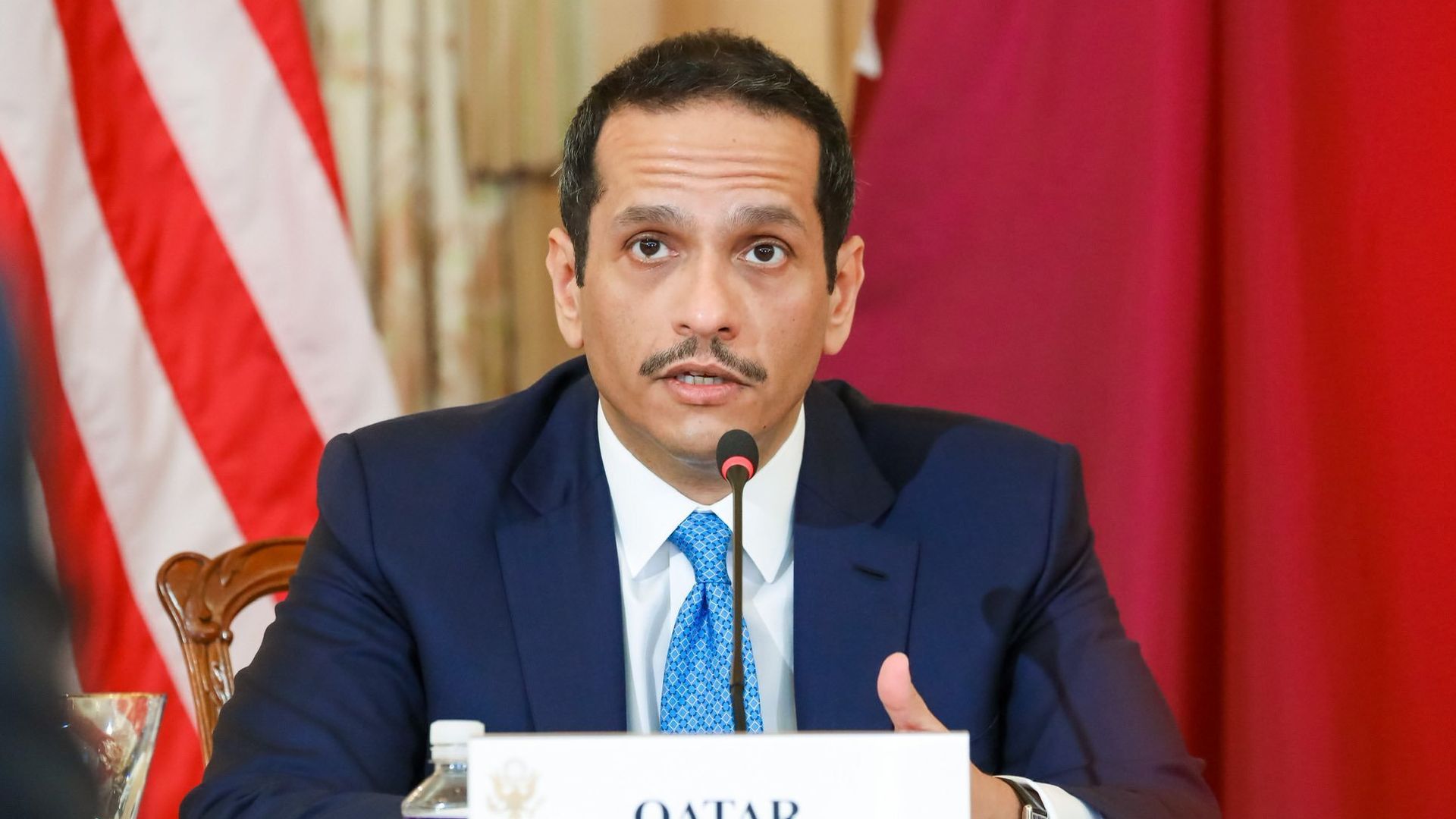Interview: Qatar's FM rules out normalization with Israel, Syria
Add Axios as your preferred source to
see more of our stories on Google.

Qatari Foreign Minister Sheikh Mohammed Bin Abdulrahman Al-Thani during a previous visit to Washington in November. Photo: Qatari Foreign Ministry / Handout/Anadolu Agency via Getty Images
In a wide-ranging interview with Axios on this week, Qatar's foreign minister ruled out the prospect of the Gulf nation normalizing its relations with either Israel or Syria — even as other Arab states take steps to integrate both.
Why it matters: Qatar has for years had outsized influence on the international stage by acting as a diplomatic intermediary between the West and its adversaries, including extremist groups like Hamas and the Taliban. But despite its reputation for favoring engagement above all else, Israel and Syria remain red lines.
The big picture: The emir of Qatar, Sheikh Tamim bin Hamad Al Thani, became the first Gulf leader to visit Biden at the White House on Monday.
- Sitting beside Al Thani in the Oval Office, Biden announced he would designate Qatar as one of 17 major non-NATO allies, entitling the country to special benefits in defense trade and security cooperation.
- The visit was the latest sign of the dramatic strengthening of ties between the two countries, after four years in which the Trump administration favored Qatar's regional rivals, Saudi Arabia and the UAE.
What he's saying: Speaking to Axios at the Qatar embassy in Washington, Foreign Minister Sheikh Mohammed bin Abdulrahman Al Thani said the U.S. and Qatar have a "strong institutional relationship," and that domestic U.S. politics — including the potential return of President Trump — are not his business.
On Afghanistan, where Qatar has agreed to represent U.S. interests, Al Thani said Qatar had reached a deal with the Taliban to resume weekly evacuation flights from Kabul's airport.
On Iran, Al Thani said Qatar is working hard to "bridge any gaps" in indirect nuclear talks between the U.S. and the Islamic Republic.
- He added that he's "very concerned" about the negotiations ending in failure, and that "we don't want to see a nuclear race in our region."
On Israel, Al Thani stressed that Qatar had previously maintained ties "when there was prospects for peace" with the Palestinians, but that his country "lost hope" after the 2008-2009 Gaza War.
- He said Qatar continues its "working relationship" to help the Palestinian people, but that it's difficult to envision joining the Abraham Accords "in the absence of a real commitment to a two-state solution."
- Qatar has in recent years had an ongoing engagement with Israel over aid to Gaza, with the previous Israeli government approving Qatar's transfer of hundreds of millions of dollars to Hamas as part of efforts to maintain peace.
On Syria, where Qatar armed rebels against Bashar al-Assad beginning in 2012, Al Thani said the conditions that led to the regime's suspension from the Arab League have not changed — despite the warming of ties between Syria and countries like the UAE, Jordan and Egypt.
- He stressed that Assad should not be rewarded for his continued attacks on his own people.
On the World Cup, Al Thani pledged to deliver a "world-class event" in November and defended the bidding process, which has been marred by allegations of corruption.
- He accepted criticism of forced-labor and other human rights issues in the construction of stadiums by migrant workers, but said the situation has improved dramatically and had been warped by "disinformation."
- Asked what he hopes the world learns about Qatar from the World Cup, Al Thani said his country is immensely proud to be the first Arab state to host such a major global event.
- "We are happy to invite the world to see all Arab nations participating and hosting this World Cup. And I think this is will be a clear message that Arab countries are not only about conflicts and wars," he contended.
- "Arab countries can deliver world-class events at the highest standard. And we are normal people who love football."
